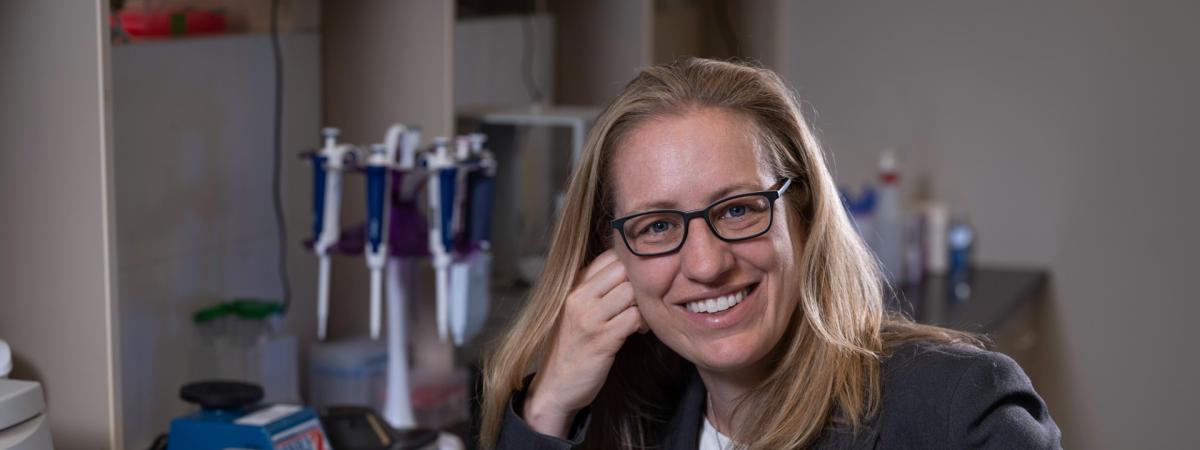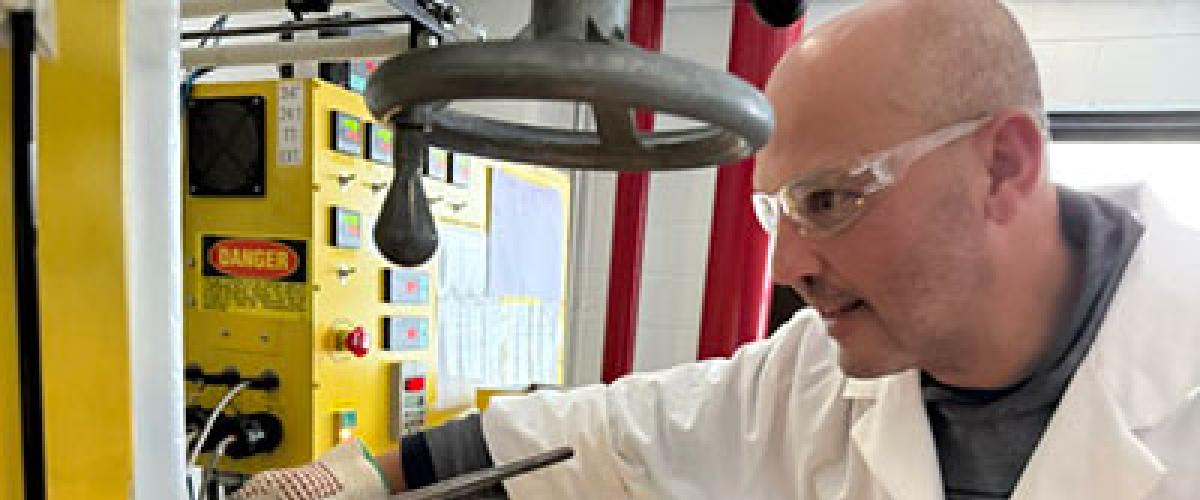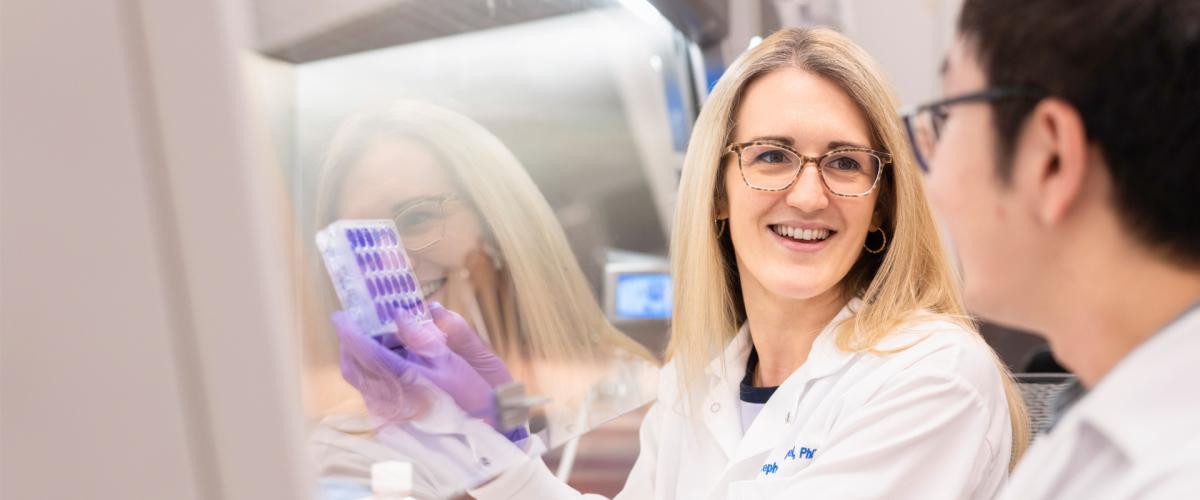
Biomaterials company founded by CWRU alumna developing hydrogel ‘bandage’ to cover and protect open wounds
GelSana Therapeutics aims to launch of Cleragel for clinical human for chronic wound care in 2025
Melissa Krebs, PhD (GRS ‘10 in Biomedical Engineering)
Founder and CEO of GelSana Therapeutics
Area of focus: Biomaterial Technology
Editor’s note: Jasmine Vo, the author of this story, is a student employee in the University Marketing and Communications department. She is a fourth-year student majoring in communication sciences.
Although the body has a natural healing process for injuries, chronic wounds could take months or years to heal naturally in patients with pre-existing diseases or a weakened immune system.
Wound-related complications, such as severe infections, could heavily impact patients’ lives. For instance, diabetic ulcers, a type of chronic wound in diabetic patients, are responsible for over 80% of cases of non-traumatic limb amputation.
Realizing this, GelSana Therapeutics, the biomaterials company led by Melissa Krebs (GRS ’10), has developed Cleragel—an innovative new approach to wound dressing that uses polymer technology. GelSana has developed novel hydrogel materials that stretch over a wound, adhering to healthy tissue to protect the open site, while also aiming to reduce the inflammation occurring at the wound site.
GelSana Therapeutics—a venture-backed startup supported in part by the CWRU Alumni Venture Fund—plans to have the first launch of Cleragel for clinical human use in 2025 with a focus on applications in chronic wound care.
Cleragel material absorbs fluid released from open wounds while moisturizing them, helps induce the creation of collagen and new blood vessels, and reduces infection—all of which aid in the healing process. When used on diabetic mouse and pig models, Cleragel has shown to reduce the time for wounds to fully close, which potentially decreases the chance of infection and complications.
“After seeing remarkable healing results in animal studies using anti-inflammatory polymers we developed, I realized this technology could make a real-world impact,” Krebs recently said in a Q&A with the Veale Institute for Entrepreneurship. “About five years ago, we founded GelSana to bring it from the lab to patients.”
Seeking business opportunities for a technology initially developed in an academic setting required additional skills for Krebs.
“Shifting from a purely scientific mindset to a business perspective required understanding how to scale manufacturing, navigate FDA regulations, and attract investors,” Krebs said. “Accelerator programs were instrumental in teaching me what early-stage companies need to succeed and how to build a team to fill in the gaps I couldn’t cover alone.”
GelSana Therapeutics has successfully raised $5.5 million from investors and non-dilutive grants, including funding from the National Institutes of Health, the State of Colorado, and the Air Force’s AFWERX program, Krebs said. GelSana was also just accepted into the MedTech Innovator 2025 cohort, a highly competitive accelerator for medical device companies. Notably, GelSana is one of fifteen startups supported by the CWRU Alumni Venture Fund.
To aspiring entrepreneurs, Krebs encouraged: “Do your best at whatever you’re doing now and stay open to where opportunities take you. Careers aren’t linear. Don’t be afraid to take risks or make unconventional choices. Enjoy the process, and trust that your path will make sense in hindsight.”




